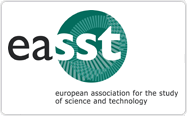When Digital Health Encounters Regulation
The Approval Process for Prescription Apps in Germany and its Ontological Politics
DOI:
https://doi.org/10.23987/sts.136435Abstract
In late 2019, Germany took significant steps towards becoming a forerunner in digital health. A new legislation stipulated that medical apps for different indications could now be prescribed to patients by their healthcare providers – the so-called Digital Health Applications (DiGAs). Patients’ public health insurance then covers the costs for these apps. The precondition for apps to be eligible for prescription and remuneration is that they undergo a prior approval process with the German Federal Institute for Drugs and Medical Devices. We take this transformation of an ordinary health app into a medico-legal product, a DiGA, as the point of departure for a detailed examination of the regulation of digital health in practice. Analyzing the approval process for DiGAs allows us to generate insights into what qualities of apps are assessed and how it addresses the fluid ontology of digital apps. Based on regulatory documents and interviews with developers of Digital Health Technologies, we approach the approval as a multi-faceted process and provide two accounts that unpack the complexities digital health poses for regulation: (1) the re-negotiation of the boundary between health-related lifestyle and medical apps and (2) the tension between the dynamic developments of apps and the static nature of regulation. Drawing on Latour’s legal sociology and the notion of reality tests developed by Boltanski and Thévenot, we argue that the approval process performs a two-fold ontological politics that transforms the ontology of both apps and regulation itself.
Downloads
Published
Issue
Section
License
Copyright (c) 2025 Carsten Horn, Ulrike Felt

This work is licensed under a Creative Commons Attribution 4.0 International License.





